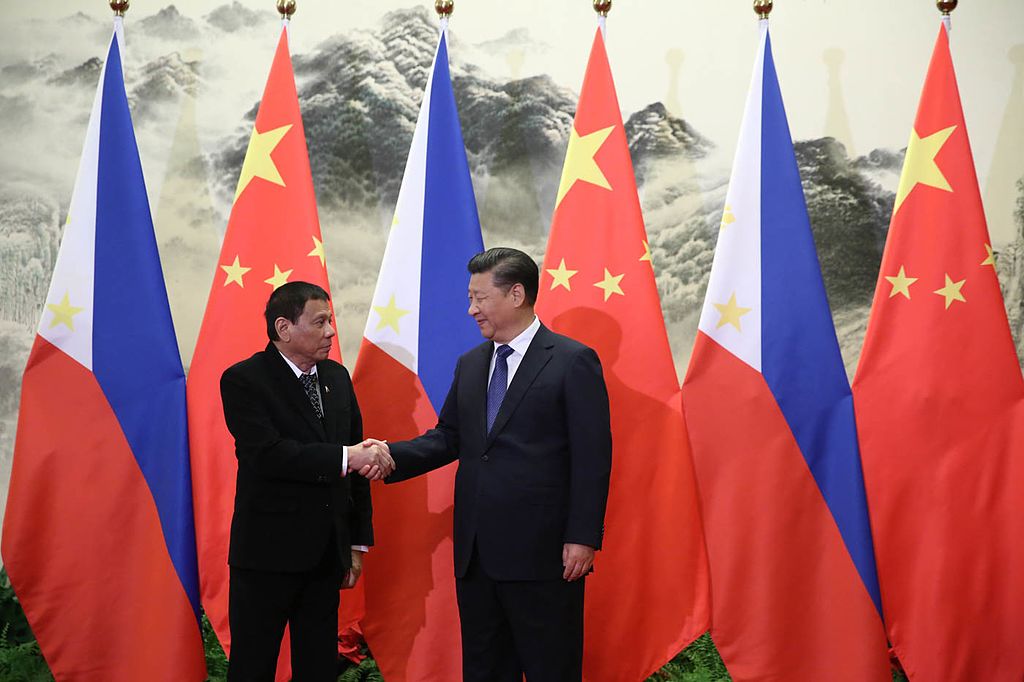Duterte's pivot to China reflects diminished US influence in Philippines
BY KIAN RAHIMNEJAD

Many in the Philippines, distraught with their country’s seemingly never-ending high crime, poverty, and growing illegal drug trade, took the populist route and elected outspoken, longtime mayor of Davao, Rodrigo Duterte. Davao, a highly urbanized agricultural and commercial city in the Philippines, which also struggles with a radical Islamic insurgency, saw Duterte’s tenure of over 20 years as positive, particularly in fighting crime and terrorism. Now, almost five months since Duterte’s election victory on May 30, Filipinos have seen progress with a massive drop in the drug rate and a 49 percent decrease in crime, according to the Philippines National Police Chief. In addition, considering the high likelihood of the passing of the Trans-Pacific Partnership, many look forward to even faster economic growth for the country. However, many citizens, both inside and outside of the country, are finding themselves concerned with where the nation is heading, as a whole.
The Philippines has found itself at odds with China’s nine-dash line claim of islands and territories within the South China Sea. China’s self proclaimed nine-dash line demarcates parts of internationally recognized Filipino territory as Chinese, and in 2012, the Chinese navy occupied and took over the Scarborough Shoal. This grew to be a nationalistic issue for many in the Philippines, with some blaming the United States and the previous president, Benigno Aquino III for not protecting their territorial integrity. Regaining control of these territories is something Duterte, who ran under a nationalistic-populist campaign platform, can get a popularity boost from.
The Philippines has always had a very close economic and military relationship with the United States, dating back decades from its time as an American colony after Spain’s defeat in the 1898 Spanish-American war. However, many observers looking at Duterte’s latest comments, including calling President Obama “a son of a whore” and announcing a “separation” from the US, are worried the country is abandoning its allegiance with the United States for closer ties with China and Russia. Though Duterte’s visit with with President Obama planned in mid-September was cancelled and there was no talk of a future visit, the Philippines President made time to visit China on October 20.
Though this idea of supposed realignment may be worrying to some in the United States’ security and military establishment, Duterte’s rants likely will not go any further than simply being rants. China, which has been rapidly rising as a world power and a growing rival to United States hegemony throughout the world, will likely incentivize the Filipino President with increased investment and development, as well as further negotiations on the possibility of returning some ownership of the Scarborough Shoals back to the Philippines. In early 2016, an international tribunal ruled that China’s occupation of the Scarborough Shoals was illegal and must be returned. China, however, decided to ignore the tribunal and offered Duterte more direct negotiations between the countries. Duterte, to American shock and dismay, agreed to China’s proposition and decided to ignore the American-backed tribunal. Other aspects of the American-Filipino relationship, however, including the United States’ bases in the country will most likely remain untouched.Phill
The United States has always been a key economic partner to the Philippines, but does not need the Philippines as much as the Philippines needs the United States. Japan and the United States are the biggest trading partners to the Philippines and many of the largest companies in the United States, such as Xerox, IBM, and Wells Fargo, have outsourced their manufacturing to the country. In addition, another massive source of income for the Philippine economy are remittances, or money sent over from expatriates working overseas. Filipinos working in the United States regularly send back more than $10 billion per year to their families, giving a much needed boost to the economy. In addition, wealthy Filipinos living outside of the country have some influence in the internal affairs of the Philippines and will likely work their hardest to prevent Duterte from shifting the country’s alliances.
China, aware of the Philippines’ century long, traditional relationship with the United States, perceives that its chances of making a real ally of the Philippines would be difficult. Instead, it will still fulfill some of its promises of investments in the country and take over any perceived gaps that the United States has left open. Chinese leaders have always been very meticulous and strategic and realize that the Philippine-US relationship cannot change in a day. However, as United States’ projection of power seems to be declining and slowing down over time, particularly under the Obama administration, the Chinese acknowledge that their time will eventually come to fill the potential void left by the United States.
